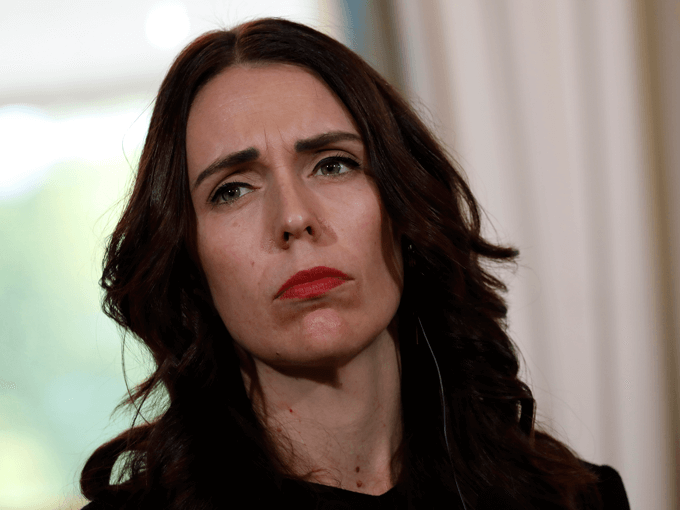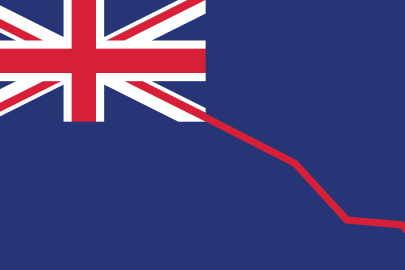May 20, 2019 Politics
As the Labour-led coalition backtracks on its fees-free policy for tertiary education students, Morgan Godfery asks whether this Government is all that different from its predecessor.
I suppose I support the Winston Peters-led government. Not out of any great affection for its policies. I mean, a capital gains tax is out, welfare reform is a non-starter, and the promise of three years fees-free will remain just that – a promise. Instead, I’m a Peters’ man for a lack of any serious alternatives. Prime Minister Simon Bridges? That reads more like a punchline than a title. Prime Minister Judith Collins? I’d sooner vote for the King of Hell than the Ice Queen.
But what about Prime Minister Bill English? Well, out of iron tribalism I could never tick the blue box, though it’s becoming increasingly hard to spot the difference between the Peters’ government – fine, the “coalition Government” – and the last lot. Prime Minister Jacinda Ardern’s Child Poverty Reduction Act aims to lift 70,000 children out of poverty over the next three years. This is a tremendous target, but it’s remarkably similar to the commitment English made at the last election to lift 60,000 children out of poverty.
The similarities are seemingly everywhere. The coalition made GP visits free for under 14s, one-upping the last government by only a year (they made it free for under 13s). Fuel excise went up as well to help fund the infrastructure spend, as per the last government. In April Police Minister Stuart Nash told media he’d be reviewing the coalition’s commitment to training another 1800 cops over three years. At the time of writing, there were only an extra 666 constables on the beat – a sign of cursed policy, surely – surprisingly close to English’s promise to train 880 freshers if National won another term.
It’s all rather interchangeable, right? Like Coronation Street and Eastenders. One’s definitely better, but only just. Maybe the differences, then, are in priorities rather than – as the politicians say – the “headline numbers”. The last government were planning a $9 billion spend on big bitumen alone. The coalition isn’t necessarily cancelling that spend but redeploying it to public transport – think the City Rail Link – safety improvements, and must-spends like SH1 north and south of Kaikoura. That $9b headline number might not increase to any great degree, but it’s almost certainly a smarter spend than tacking on a couple new lanes that bottleneck a few kilometres later.
The capital spend on social infrastructure is changing too. The last Government were planning an almost $800 million spend to increase prison capacity – isn’t it funny how crime is going down while prison numbers go up? – but the coalition is opting for a “small prison” rather than the originally planned “mega-prison”, reasoning that if you build a mega-prison, it will be filled. English and his Health Minister were planning $150 million for new building programmes in the country’s hospitals too, but the coalition is instead planning a whole new hospital investing billions in a new-build in central Dunedin. Priorities. They do make a difference.
But the more things change the more they stay the same. Despite advice to lift core benefits between 12 and 47 percent, Social Development Minister Carmel Sepuloni says the coalition prefers them where they are (for now). Spending in Maori development, Labour’s bread and butter, remains more or less the same as under English. So much for that “transformative government”. The coalition’s defenders argue there is only so much you can do, as the name suggests, in coalition. Sure. Peters has put paid to a capital gains tax, to cite the best example. Yet what’s the use of having the most popular Prime Minister in living memory unless she puts that popularity to political use?
In truth, Peters is playing a weak hand. His party consistently polls under the 5 percent threshold. The last time he left a government (in the 1990s) his support took a nose-dive, only hanging on thanks to the good people of Tauranga. Forcing an early election risks another wipe-out. Not that anyone in Labour or the Greens will call his bluff. Peters is the only man playing. This is where Jacinda Ardern is probably more like ex-Prime Minister John Key than we like to acknowledge. They’re both wonderfully genuine, they’re obviously terrific communicators, and they’re chronically risk-averse.
It’s an uncomfortable thing to acknowledge, but Ardern’s political instincts are often conservative. You can accuse the Helen Clark of only going so far on the issues that mattered to her base – failing to remove some of the worst parts of the Employment Contracts Act, for example – but Clark was willing to spend political capital and spend big on the things she believed in. The anti-smacking bill. Civil unions. Ardern says she still believes in a capital gains tax, and if she could she would, but she spent not a single cent of political capital on it.
Labour’s current conservatism reaches its peak in the unintentionally funny Budget Responsibility Rules (BRRs). Under the BRRs the government commits to paying down debt and keeping core Crown spending within certain limits. The Oxford English Dictionary will probably define “neoliberalism” as “the Budget Responsibility Rules” in its next edition. What’s striking, though, is not even English made a commitment like the BRRs, probably recognising they risked constraining any reformist agenda in a hypothetical fifth term. Remind me, who’s on the left again?
Interestingly, it’s commentators on the right who articulate that contradiction best. Writing in the Herald last year Matthew Hooton explained the BRRs are based on a “naivety about the business and finance communities and woeful ignorance of what drives confidence in either”. Better to worry about a backlash from teachers, nurses, and motorists, Hooton argues, than the business community. It’s awful to admit but he’s obviously right. Teachers are planning a mega-strike. Nurses came close. Perhaps this is what distinguishes the Parliamentary left from the right. One side delivers for its base, and the other struggles to.
Follow Metro on Twitter, Facebook, Instagram and sign up to our weekly email






